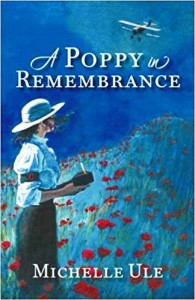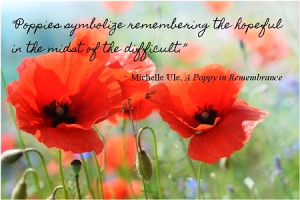 As World War I breaks out, Claire Meacham struggles to carve out a place in the male-dominated world of journalism. She struggles to hang on to hope while war tears her world apart. When she meets Oswald and Biddy Chambers, she adds another challenge—how to live out the teaching of Scripture. As the war grinds on, her new-found faith is tested and stretched.
As World War I breaks out, Claire Meacham struggles to carve out a place in the male-dominated world of journalism. She struggles to hang on to hope while war tears her world apart. When she meets Oswald and Biddy Chambers, she adds another challenge—how to live out the teaching of Scripture. As the war grinds on, her new-found faith is tested and stretched.
I usually like stories where I’m drawn into the story world so well that I feel like I’m there. Consider this description from page 306:
“Cranes and longshoremen toted loads from transport ships. The oily ship smell, raucous seabird calls, and salty ocean moisture pervaded the busy dock. Farther down the quay, they found a line of ambulances waiting to offload patients to a ferry. Soldiers stood in formation, nursing sisters scurried and a moaning fog horn underscored it all.”
Are you there? An author’s ability to do this can be a problem in stories with ugly or painful settings. And WW I was certainly that. But Michelle Ule’s skill keeps this from being a depressing read. Much like Kristy Cambron’s novels of WW II and the Holocaust, Ule balances gritty historical fact with storylines that include tenderness, humor, and insight.
 Ule has done an amazing job of braiding together stories that could each be a book unto itself: history, biography, romance, and an interesting coming-of-age tale. She weaves the various elements with sparks of beauty, wit, and wisdom.
Ule has done an amazing job of braiding together stories that could each be a book unto itself: history, biography, romance, and an interesting coming-of-age tale. She weaves the various elements with sparks of beauty, wit, and wisdom.
Her characters are realistically drawn with a wide variety of personalities, points of view, and burdens. Dialog is crisp, never superfluous. Ule’s descriptions are gripping, fresh, and engage the senses. The settings are captured so well that, rather than simply reading, at times I seemed to look at a painting. Other times, the sights and sounds were so real, I felt as if I’d stepped into a new land.
Claire’s journey is a poignant, powerful one. When her mother asks if Claire’s experiences and losses in the war won’t allow her to write about it honestly, we see the impact the war is having on her:
“Claire didn’t know. Everything about her life seemed untethered. She wasn’t sure what was important and what didn’t matter.” [page 342]
The story’s end is deeply satisfying.
